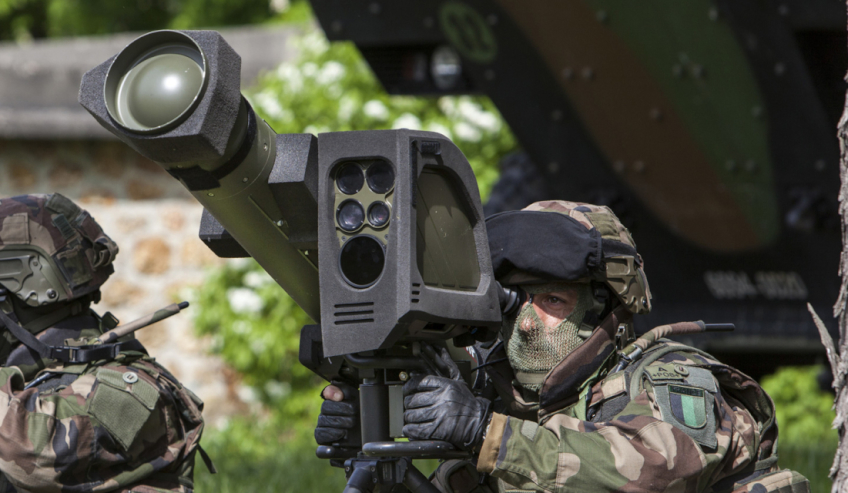As missile developer MBDA looks to secure lucrative contracts in the Australian defence market, including the LAND 400 Phase 2 missile project, the company has just marked five consecutive years of growth.
For the fifth consecutive year MBDA recorded a high in orders in 2017, worth €4.2 billion ($6.75 billion), while revenue amounted to €3.1 billion. By 31 December the company’s order book reached a record peak of €16.8 billion.
In 2017, export orders (€2.6 billion) once again exceeded orders from the company's domestic countries (€1.6 billion across France, Italy and Britain).
Export orders in 2017 notably include contracts with Qatar for MCDS coastal batteries and the arming of Fincantieri corvettes, but do not take into account the Typhoon armament for Qatar, a contract that is expected to enter into force in 2018. Other major contracts won in 2017 include VL MICA systems for GoWind corvettes in Egypt, Sea Ceptor for Type 23 frigates in Chile and Marte for fast patrollers in the UAE.
2017 also saw the creation of a joint venture between MBDA and its Indian partner Larsen & Toubro to meet the Indian Armed Forces' future requirements under the New Delhi government's ‘Make in India’ policy.
Domestically, the year was marked in France by the first deliveries of naval cruise missiles (MdCN) and medium-range missiles (MMP) for land combat; in the UK, by the order for additional Meteor missiles to continue with integration on F-35 Lightning II; in Germany, by the formal kick-off of negotiations with the authorities on the TLVS air defence and anti-missile program; and in Italy, by the choice of the CAMM ER missile within the framework of the replacement of the Aspide air defence missile system.
France and the UK also launched the concept phase of the FC/ASW (future cruise/anti-ship missile) program, which aims to replace SCALP/Storm Shadow, Exocet and Harpoon in both states.
The Franco-German summit of 13 July 2017 opened the prospect of co-operation in the segment of ground combat missiles fired from helicopters, and the development of a future European air combat system whose performance will require further leaps forward in the field of missiles.
In addition, 25 EU countries joined the Permanent Structured Co-operation initiative, which MBDA said should facilitate the launch of European co-operation programs. MBDA will also participate in the very first defence research program, the Ocean 2020 project, funded by the new European Defence Fund, which aims to explore future maritime monitoring and interdiction technologies.
MBDA CEO Antoine Bouvier said the company will now look to hire over 1,000 people this year across its organisation as a result of the sustained growth.
"The group continues to move forward on each of its three strategic pillars: to give its domestic countries guaranteed access to missile technological sovereignty, to pursue European consolidation, to develop international activities; these three actions jointly contribute to the critical mass of MBDA, that is its ability to achieve long-term development faced with its global competitors," he said.
"We continue to view the future with optimism, targeting, as we expected, €4 billion in revenue by 2020. To support this growth, the group plans to hire nearly 1,200 people this year, after recruiting 1,000 in 2016 and as many in 2017."
On the Australian front, MBDA is not only offering MMP, the fifth-generation anti-tank guided weapon, it is also pitching its various technologies included Meteor for the F-35 Joint Strike Fighter and Brimstone for armed UAVs and attack helicopters.
MBDA has partnered with South Australia's Airspeed, Queensland's Ferra Engineering and Victoria's Cablex as part of its Australian industry content offering for the LAND 400 Phase 2 missile contract.









